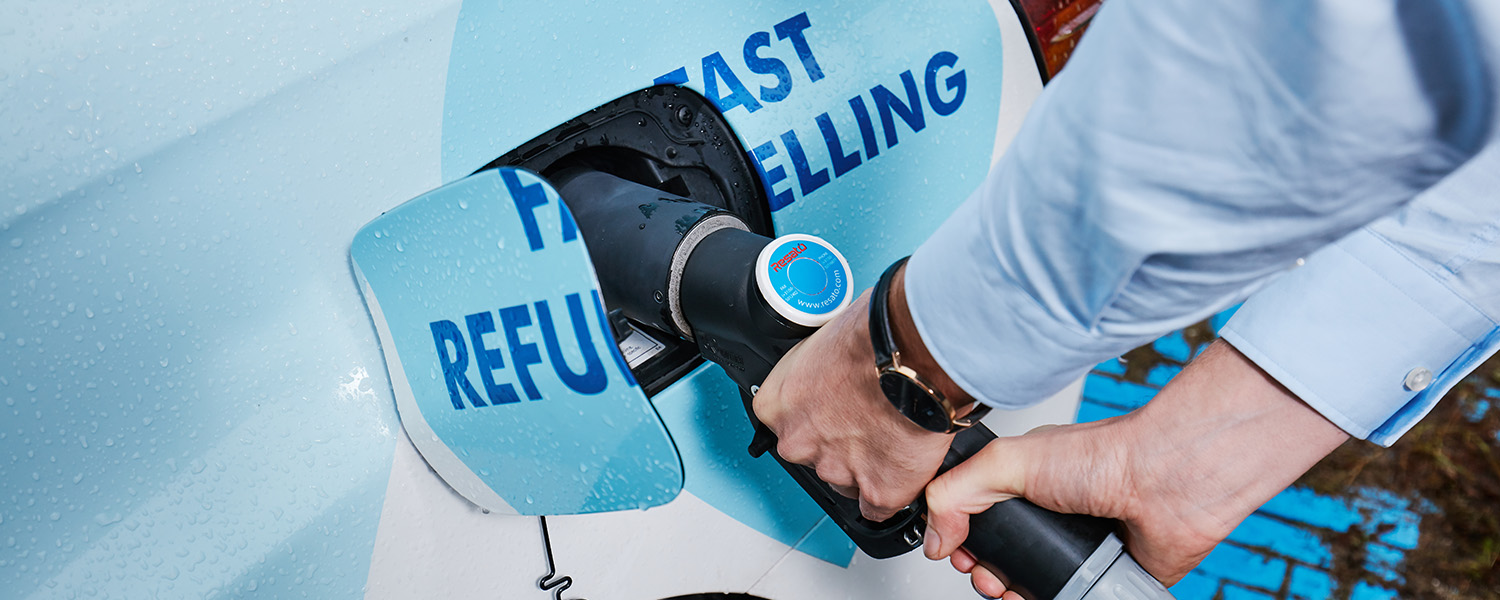
Photo above: A hydrogen station in the Netherlands.
Advocacy
We believe it is important to hold open dialogue on fiscal matters and we advocate for fair, effective and stable tax systems.
Informed debate and decision-making
Shell engages in advocacy on tax matters to provide policymakers with commercial insights to inform debate and decision-making. We share our position with the relevant governments and policymakers on matters which affect us, our employees, customers, shareholders or local communities, in accordance with our values and the Shell General Business Principles.
Shell recognises that any advocacy should not improperly influence decisions and should never be misused for any corrupt or illegal purpose. Shell companies do not make payments to political parties and organisations or their representatives and do not participate in party politics. For further information, see the Annual Report and Accounts.
Governments are responsible for their fiscal policy and resulting laws. We respect the roles and responsibilities of the institutions and organisations we engage with.
Supporting effective tax regimes
We advocate for fair, effective and stable tax systems because they reduce uncertainty for both governments and companies. Such tax systems help countries develop sustainable budgets and help companies manage their investments more effectively.
Governments may seek input from different stakeholders through public consultation when they design tax policies. We believe it is important to hold an open dialogue on fiscal matters as new legislation should be effective, practical to administer and facilitate the collection of taxes.
For example, we support the implementation of government-led carbon-pricing systems, including carbon tax, and recognise these as an essential tool for reducing emissions and tackling climate change. We believe that smart policies from governments, such as applying a cost to emissions through measures such as carbon-pricing mechanisms, supported by effective steps to reduce emissions, are among the best ways to reach solutions and drive progress.
We regularly share knowledge and best practice through participation in industry and professional associations. These include the Extractive Industries Transparency Initiative (EITI), the B Team Responsible Tax Working Group (B Team) and Business at OECD.
Transparency in tax advocacy
The Shell General Business Principles describe our core values, our responsibilities and the principles and behaviours by which we do business. In all cases of advocacy, employees are bound by the Shell General Business Principles and Code of Conduct.
As part of these principles, everyone engaged in Shell’s business, including tax advocacy activities, must comply with the anti-bribery and corruption laws of the countries where we operate as well as those that apply across borders. Our employees and contractors, and people working in joint ventures we operate are prohibited from offering, paying, seeking or accepting a personal payment, gift or favour in return for favourable treatment or to gain a business advantage. There is no place for bribery or corruption at Shell.
Shell senior executives, including tax and government relations professionals, lead our tax advocacy activities. We also participate in industry groups that advocate on behalf of businesses. We report on our advocacy activities in line with local requirements.
In the European Union (EU) and the USA, we also report on costs relating to advocacy activities in line with the requirements and guidelines set out in the EU Transparency Register and the US Lobbying Disclosure Act. These submissions are publicly available.
Tax advocacy in practice
Biofuels are a renewable energy source, made from organic matter or waste, which can significantly reduce carbon dioxide (CO2) emissions from transport. To encourage the use of certain biofuels, some countries have introduced subsidies and tax-based incentives based on their domestic policy needs.
In India, only the sale of biodiesel is subject to a lower 5% general sales tax (GST) and lower GST rates for the purchase of qualifying plant and machinery.
Shell’s demonstration plant at the Shell Technology Centre Bangalore, India, features an advanced biofuel process called IH2, a technology that can turn waste into transport fuel. The plant can process around 5 tonnes a day of feedstock, such as agricultural waste, and aims to demonstrate the technology for possible scaling up and commercialisation. This advanced biofuel is not classed as biodiesel and therefore is not subject to the lower sales tax.
We advocate that all biofuels should benefit from the same concessions, not just biodiesel.
Our work with the EITI
We are a founder and board member of the EITI and Shell’s Executive Vice President Taxation and Controller, Alan McLean, serves on the international EITI Board. The EITI is the global standard to promote the open and accountable management of extractive resources.
The EITI provides a platform for governments, non-governmental organisations and companies to disclose information that supports greater transparency and responsibility in the extractive sector, including the oil and gas industry.
We aim to support governments’ ambitions to achieve contract transparency. We encourage governments to share contracts and licences in line with the EITI’s revised standard on contract transparency. This requires countries implementing the EITI standard to disclose contracts and licences that are granted, entered into or amended from January 1, 2021. According to the EITI, over 30 EITI implementing countries are disclosing some or all of their contracts. Shell is party to some of these contracts. In the Netherlands, Shell supports the government’s efforts in contract transparency, including publishing licenses for carrying out oil and gas activities.
At the Global Conference of the EITI in Paris in June 2019, our Chief Financial Officer, Jessica Uhl, emphasised the importance of transparency to foster trust. She encouraged companies to join the B Team Responsible Tax Principles and to join the EITI.
Indirect tax
The European Commission has proposed measures to mitigate potential VAT fraud on the cross-border supply of goods within the EU. The Commission regularly invites comments on its proposals from business and academia to help shape its policies in this regard.
Shell supports measures that combat criminal activity. As a global business, we can contribute experience and insight to these discussions to strengthen processes and controls. Together with other companies we call for a simplified and harmonised regulation process in support of fair and efficient indirect tax systems.

Using technology to improve seismic studies.
 Message from the Chief Financial Officer
Message from the Chief Financial Officer
 Shell’s approach to taxes
Shell’s approach to taxes
 Special topics
Special topics
 Our tax data
Our tax data
